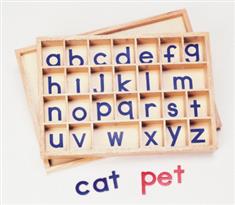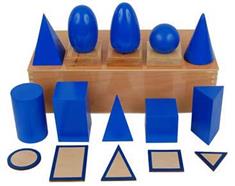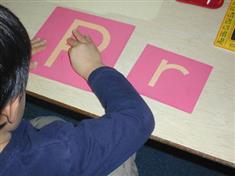- Montessori School 31
- What is Montessori Education?
Montessori Philosophy
Page Navigation
-
What is Montessori Education?
Montessori is a method of education named after Dr. Maria Montessori. She was the first woman in Italy to obtain the degree of Doctor of Medicine. Because she was a doctor, Maria Montessori looked at education from a scientific level. She believed that education should prepare a person for all aspects of life. She designed materials and techniques that would promote a natural growth of learning in students. They are common to all Montessori classrooms. Working with these materials and techniques forms a pattern that children carry over naturally to reading, writing, and mathematics. Each skill is developed to interlock with another.
From The American Montessori Society:
The Montessori Method of education, developed by Dr. Maria Montessori, is a child-centered educational approach based on scientific observations of children from birth to adulthood. Dr. Montessori’s Method has been time tested, with over 100 years of success in diverse cultures throughout the world.
It is a view of the child as one who is naturally eager for knowledge and capable of initiating learning in a supportive, thoughtfully prepared learning environment. It is an approach that values the human spirit and the development of the whole child—physical, social, emotional, cognitive.
Montessori education offers our children opportunities to develop their potential as they step out into the world as engaged, competent, responsible, and respectful citizens with an understanding and appreciation that learning is for life.
- Each child is valued as a unique individual. Montessori education recognizes that children learn in different ways, and accommodates all learning styles. Students are also free to learn at their own pace, each advancing through the curriculum as he is ready, guided by the teacher and an individualized learning plan.
- Beginning at an early age, Montessori students develop order, coordination, concentration, and independence. Classroom design, materials, and daily routines support the individual’s emerging “self-regulation” (ability to educate one’s self, and to think about what one is learning), toddlers through adolescents.
- Students are part of a close, caring community. The multi-age classroom—typically spanning 3 years—re-creates a family structure. Older students enjoy stature as mentors and role models; younger children feel supported and gain confidence about the challenges ahead. Teachers model respect, loving kindness, and a belief in peaceful conflict resolution.
- Montessori students enjoy freedom within limits. Working within parameters set by their teachers, students are active participants in deciding what their focus of learning will be. Montessorians understand that internal satisfaction drives the child’s curiosity and interest and results in joyous learning that is sustainable over a lifetime.
- Students are supported in becoming active seekers of knowledge. Teachers provide environments where students have the freedom and the tools to pursue answers to their own questions.
- Self-correction and self-assessment are an integral part of the Montessori classroom approach. As they mature, students learn to look critically at their work, and become adept at recognizing, correcting, and learning from their errors.
Given the freedom and support to question, to probe deeply, and to make connections, Montessori students become confident, enthusiastic, self-directed learners. They are able to think critically, work collaboratively, and act boldly—a skill set for the 21st century.












